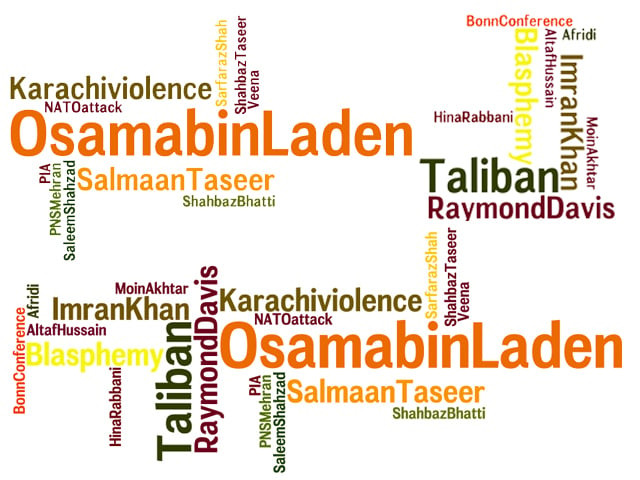The closing of the Pakistani mind
The year 2011 must rank as one of the worst years in the nation’s life.

Rage and excessive passion characterised the functioning of many key institutions, with the masses following their lead thanks to the dubious role played by a vastly expanding but increasingly cash-strapped media. Foreign affairs were most immoderately handled, with the army calling the shots and a divided community of politicians pushing each other to the point of no return. The Raymond Davis case was handled in a curiously unbalanced manner without regard to consequences, pledging qisas (hanging) but falling back on diyat (blood money).
The year saw a new peak of the steadily gestated extremism in our collective national behaviour with the blasphemy law netting more innocent victims from among the minority communities. Moreover, the lawyers’ community, which everyone thought was tempered by the finer points of law, exposed itself as an extremist fragment that actually encouraged criminal behaviour.
What was most condemnable is that the nation bent to the command of the extremist because of fear while pretending to be pious and full of ghairat. The right-wing opposition embraced the violent worldview of the terrorists, thinking it went down well with the masses. The liberal was on the run, hiding his stripes lest he be the victim of the excessive passion of the conservative. The war against terrorism was decidedly not the war that Pakistan wanted to fight. Led by the army, the political lemmings decided to walk to the edge by calling the terrorists ‘our own brothers’.
The result was that when Osama bin Laden was killed in Abbottabad, the nation minded the fact that he was killed — some state-backed non-state actors actually observed namaz-i-janaza for him — forgetting that he and his many local affiliates had killed innocent Pakistanis. You have to be a non-Pakistani to understand what was happening in June when the nation ‘united’ and the politicians got together in an APC, led by the nose into what appeared to be Pakistan’s most isolationist phase. Pakistan’s relations with Isaf-Nato states plummeted and October saw what appears to be the endgame, not in Afghanistan, but Pakistan.
When the state was expressing its willingness to fight the world and not the terrorists, and the people were forming a suicidal consensus, nothing was going right with the economy. The infrastructure wound down quickly, the railways gave up its ghost, the PIA started grounding its planes because of lack of funds, and the industrial sector was halted by the shortage of energy pushed by dwindling reserves of natural gas that Pakistan had been guzzling with no planning or the future. People living without electricity attacked public property to make the government heed their grievances.
The only community that flourished were the terrorists that the politicians wanted to embrace and the military didn’t want to take on because of its seeming obsession with the endgame in Afghanistan. The nation’s dumbing down became almost an epidemic, propagated in large part by the anchors of the TV channels. That said, a generally vibrant media was a welcome check and we can hope for relatively more mature comment in future. The increasing use of social media among many urban educated Pakistan is an added positive as well, since it is, to some extent, shaping public discourse. Furthermore, it has led to a more freeing of the rigid control of information exercised by the state. The year ended with mammoth political rallies organised after their leaders pushed the right buttons — hate America, love the Taliban — reinforcing the state’s isolationist trajectory. Yet with a new party emerging as a popular contender, the political scene was revitalised — and many who had given up set aside their pessimism to take part in the new developments which will be played out 2012.
Published in The Express Tribune, January 1st, 2012.














COMMENTS
Comments are moderated and generally will be posted if they are on-topic and not abusive.
For more information, please see our Comments FAQ